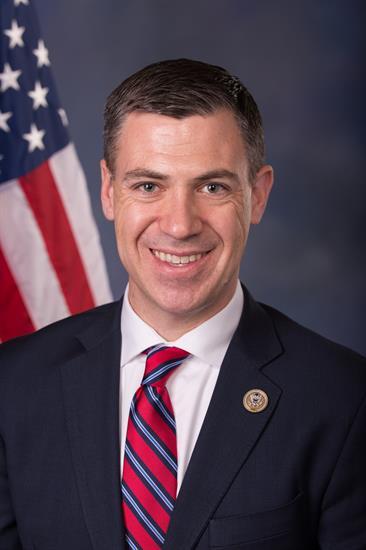Balanced Budget Plan from House Republican Study Committee conservatives would make Trump tax cuts permanent and rein in spending.
House conservatives say they’ve crafted a plan to rein in government spending and balance the federal budget in seven years.
The budget proposal from the Republican Study Committee would reduce mandatory spending by $11.86 trillion over 10 years while lowering nondefense discretionary spending by $3.64 trillion.
The U.S. government faces a budget deficit of $3.1 trillion. The accumulated national debt stands at $30 trillion.
“A fiscally responsible budget isn’t just for conservatives—it’s for all Americans,” said Rep. Kevin Hern, R-Okla., chairman of the Republican Study Committee’s Budget and Spending Task Force.
“The RSC budget prioritizes smart, commonsense policy to empower workers and save our country from a debt disaster,” Hern said. “When Washington spends less, American families have more.”
The Republican Study Committee, considered the largest group of House conservatives, is the only group in Congress to release its own proposed federal budget this year. Rep. Jim Banks, R-Ind., is the chairman of the RSC.
“The federal government has spent more at a faster rate over the past two years than at any [other] point in history. It’s not a coincidence that Americans are worse off than they’ve been in years,” Banks said in a written statement, adding:
“Reckless spending has failed, and conservatives in Congress should take the opportunity to course correct, rein in spending, and save America from a dire fiscal future.
“I’d like to thank the RSC Budget and Spending Task Force, its Chair Kevin Hern, and the over 80 RSC members whose policy proposals were included in this year’s budget. Producing a plan to balance the budget gets more difficult each year and it is only possible because of their contributions.”
This year’s RSC proposal includes a record number of legislative proposals from members.
Such proposals can drive debate or set the framework for future policy, even though it is unlikely to be enacted with Democrats holding majorities in the House and Senate, as well as one of their number, President Joe Biden, in the White House.
The RSC’s proposed budget addresses health care, national security, entitlements, and other issues. It would:
- Provide a 5% real funding increase in defense spending amid growing global threats from China and Russia. Closer to home on the security front, the budget would fully fund construction of a southern border wall; preserve Title 42, a public health measure during the COVID-19 pandemic that allowed the Border Patrol to return illegal immigrants to their home countries without a hearing; and reinstitute former President Donald Trump’s “remain in Mexico” policy for asylum-seekers.
- Make the Tax Cuts and Jobs Act, popularly known as the Trump tax cuts, permanent. It also would add other tax reforms, such as reducing the tax burden for investments in new commercial structures; allow immediate expensing of research and development costs; adopt universal tax-free savings accounts; and lower capital gains taxes for middle-class families.
- Prevent federal dollars from paying for abortions, in what the RSC says would be the “most pro-life budget ever produced.” It also would stop taxpayer dollars from promoting critical race theory, advance “a pro-parent education agenda,” and uphold the Second Amendment.
- Protect health insurance for Americans with preexisting conditions ,while also promoting innovation and affordability in the health care market with less government involvement.
- Reverse Social Security’s glide path to bankruptcy, predicted to occur in 2034 if policymakers don’t make changes. The plan seeks to ensure the long-term solvency of the entitlement program, guaranteeing benefits for Americans who are retired or close to retirement. It would increase benefits for low-income retirees, eventually raise retirement age for receiving benefits, and gradually lower benefits for high-income earners.
- Turn around Medicare, predicted to go bankrupt in 2028 unless benefits are cut for seniors or steep tax hikes are implemented for those now in the workforce. The proposal would allow traditional Medicare benefits to compete with private plans, to reduce costs and spur innovation. Seniors would continue to have access to fee-for-service benefits, and premium support would be tied to the cost of traditional Medicare.
- Include a “Keep the 9” amendment to the Constitution, to require that the Supreme Court be limited to nine justices, rather than the greater numbers favored by many Democrats.
- Rescind any unobligated funds for COVID-19 relief and repurpose those dollars to reduce the budget deficit.
- Permanently ban budget earmarks, which are pet projects and similar items that members of Congress slip into larger spending bills.
- End the Dodd-Frank law’s bailout authority for big banks, and call for an audit and reform of the Federal Reserve.
Leaders of several conservative organizations already say they support the Republican Study Committee’s budget proposal.
“This budget addresses America’s most pressing challenges, by getting spending and inflation under control, protecting life, securing our borders, standing up to China, and more,” Heritage Foundation President Kevin Roberts said. “The RSC is going on offense, setting the tone for what conservatives must do when the people take back control.”
Jessica Anderson, executive director of Heritage Action for America said in a statement:
“In recent years, the American people have been subjected to out-of-control federal spending that’s led to record-setting inflation and debt levels. However, there is still hope as the RSC has taken the initiative to draft its own budget—a basic task that the left has declined to engage in. If enacted, the RSC budget would lead America down a path of much needed fiscal conservatism and we applaud Chairman Banks and Congressman Hern for leading the charge to get our fiscal house in order.”
Originally published by The Daily Signal. Republished with permission.











